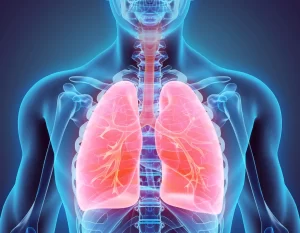
Menopause is a natural transition, but it can bring significant stress due to hormonal shifts and physical changes.
Fluctuating estrogen levels, sleep disturbances, and mood swings can make everyday life feel overwhelming. The good news? With the right lifestyle adjustments and natural strategies, you can reduce menopause-related stress and regain balance.
Menopause is more than just the end of menstruation, it’s a hormonal shift that affects both the body and mind. One of the biggest contributors to stress during this phase is the decline in estrogen and progesterone, which help regulate mood and stress responses. As these hormone levels drop, the body produces more cortisol, the stress hormone, making women more susceptible to anxiety, irritability, and mood swings.
This hormonal imbalance can also disrupt sleep, causing insomnia or restless nights, which further contributes to stress. In addition, common menopause symptoms like hot flashes, night sweats, and fatigue can make daily life feel overwhelming.
The mind-body connection plays a crucial role here. When stress builds up, it can intensify menopause symptoms, creating a cycle that’s hard to break. That’s why it’s essential to take proactive steps to reduce stress during menopause and regain a sense of control and well-being.
Making small but meaningful lifestyle adjustments can significantly reduce stress during menopause and help restore balance. Here are some effective strategies:
Certain foods can help regulate hormones and keep stress levels in check. Focus on:
Exercise is a powerful stress reliever. It boosts endorphins (feel-good hormones) while reducing cortisol. Try:
Lack of sleep intensifies stress, so improving sleep quality is essential. Tips include:
Simple relaxation techniques can make a big difference in managing menopause-related stress:

In addition to lifestyle changes, natural remedies and supplements can help reduce stress during menopause by supporting hormonal balance and calming the nervous system. Here are some of the most effective options:
Certain herbs have been traditionally used to support women’s health during menopause:
Nutritional deficiencies can worsen menopause symptoms, so it’s important to ensure adequate intake of:
Adaptogens are natural substances that help the body adapt to stress and restore balance. Some beneficial ones include:
Dehydration can increase stress and fatigue, so staying hydrated is crucial. Reducing caffeine and alcohol intake can also prevent mood swings and improve sleep.
Menopause can feel overwhelming, but emotional and social support can make a significant difference in reducing stress. Surrounding yourself with understanding people and seeking professional guidance can help you navigate this transition with more ease.
Talking about your experiences with others can be incredibly therapeutic. Try joining a menopause support group (online or in-person) to share experiences and get advice. Opening up to close friends or family about your struggles to foster understanding and support. Engaging in social activities that bring you joy and reduce isolation.
If menopause-related stress is affecting your emotional well-being, working with a professional can help. Options include:
Menopause can impact relationships, so it’s important to communicate openly. Explain how hormonal changes affect your emotions so your loved ones understand what you’re going through. Set boundaries and ask for support when you need time to rest or focus on self-care. Encourage patience and compassion, for yourself and those around you.
Emotional and social connections provide comfort and reassurance, helping you feel less alone during menopause.
While lifestyle changes and natural remedies can help reduce stress during menopause, there are times when professional help is necessary. If menopause-related stress starts to interfere with your daily life, seeking medical guidance can provide relief and reassurance.
If you experience any of the following, it may be time to seek support:
Hormone Replacement Therapy (HRT) is an option for women struggling with severe menopause symptoms. A doctor can help determine if HRT is right for you based on your medical history and symptoms. Other medical treatments, such as antidepressants or anxiety medications, may also be considered if stress and mood swings are unmanageable.
If you prefer a more holistic approach, you might consider:
There’s no one-size-fits-all solution for menopause stress, so don’t hesitate to reach out to a healthcare provider for personalized guidance.
Menopause is a significant life transition, but it doesn’t have to be overwhelming. By making mindful lifestyle changes, incorporating natural remedies, and seeking emotional support, you can significantly reduce stress during menopause and regain a sense of balance.
Key Strategies:
Menopause is a new chapter, and with the right approach, you can navigate it with confidence and well-being. If you’re looking for more ways to support your hormonal health, explore the resources available at CellaMD.
Related Articles










* These statements have not been evaluated by the Food and Drug Administration. This product is not intended to diagnose, treat, cure or prevent any disease.